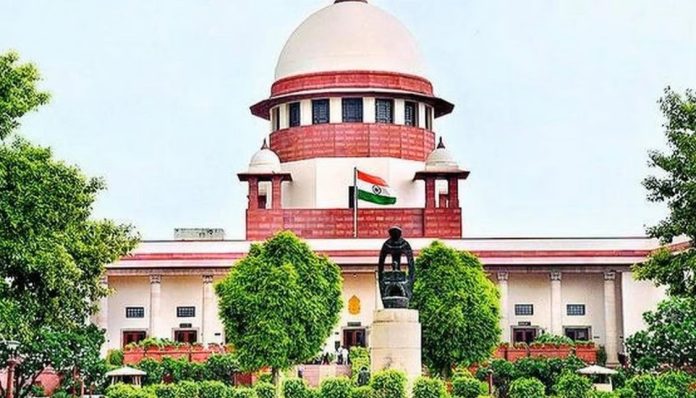– Abdul Bari Masoud
New Delhi: Opposition parties in Assam and Jamiat Ulama-i-Hind(M) on Thursday praised the Supreme Court’s decision upholding the constitutionality of Section 6A of the Citizenship Act, which grants citizenship to Bangladeshi immigrants who entered Assam before March 25, 1971. They accused Assam Chief Minister Himanta Biswa Sarma of undermining the Assam Accord for political purposes, citing the Citizenship Amendment Act (CAA) as a prime example.
The ruling was lauded as a historic moment in Assam’s political landscape, drawing support across party lines. Assam Pradesh Congress Committee (APCC) leader Bhupen Borah welcomed the verdict, expressing renewed hope for the people of Assam. He accused Chief Minister Sarma of trying to sabotage the Assam Accord, calling the court’s decision a relief and a victory for the state’s people.
Former Rajya Sabha MP Ripun Bora echoed these sentiments, calling the ruling ‘historic’. He emphasized that the Assamese people, regardless of caste, creed, or religion, recognized the 1985 Assam Accord, which set March 25, 1971, as the cut-off date for citizenship. Bora criticized Sarma and the BJP government for creating confusion around this date. He affirmed that the Supreme Court’s decision reinforces the validity of the 1971 cut-off for identifying and deporting illegal immigrants.
All India United Democratic Front (AIUDF) celebrated the ruling with a cake-cutting event at its office in Guwahati, according to the Assam Tribune. Aminul Islam, an AIUDF MLA, called it a victory for the Assam Accord, expressing hope that the National Register of Citizens (NRC) and D-voter processes would now proceed more smoothly without political interference.
Rijor Dal leader Akhil Gogoi also praised the ruling, stating that it confirms the CAA’s inapplicability to Assam. He urged the government to take effective steps in deporting illegal immigrants who entered the state after 1971.
Jamiat Ulama-i-Hind(M), a petitioner in the case, celebrated the verdict as a significant relief for lakhs of people in Assam. Maulana Mahmood Madani, President of JUH(M), called the ruling a milestone in the long struggle to secure citizenship rights for Assam’s oppressed people. He emphasized that the verdict ends years of fear and uncertainty, and vowed to continue Jamiat’s efforts to protect marginalized communities. Maulana Badruddin Ajmal, President of Jamiat Ulama-i-Assam, expressed gratitude to all who contributed to safeguarding the citizenship rights of Assam’s people.
In its landmark judgment, the Supreme Court declared Section 6A of the Citizenship Act, 1955, constitutional. The five-judge bench, led by the Chief Justice, upheld the 1971 cut-off date for Assam, providing much-needed relief to lakhs of people who have lived in fear of losing their citizenship for decades. The court also upheld the Assam Accord, recognizing it as a political solution to the issue of illegal immigration and affirming the legal validity of the March 25, 1971, cut-off.
JUH(M) had been fighting the case in the Supreme Court for 15 years. The organization is also involved in nine other cases concerning the Assam NRC. Previously, it secured a victory when the court recognized Panchayat Link Certificates as valid documentation for 4.8 million women, ensuring their citizenship rights.
Section 6A of the Citizenship Act grants citizenship to immigrants of Indian origin who entered Assam before March 25, 1971. This provision was added following the 1985 Assam Accord, a political agreement between the leaders of the Assam Movement and the Indian government, which acknowledged anyone residing in Assam before the cut-off date as an Indian citizen.
The NRC exercise in Assam, conducted between 2013 and 2019, revealed that around 1.9 million people were deemed illegal immigrants. Contrary to claims of mass infiltration by Bangladeshi nationals, only about 6 lakh Muslims were declared illegal migrants. However, concerned organizations have indicated that these individuals’ citizenship rights may be restored through court proceedings.
In 2009, the Assam Sanmilita Mahasangha filed a petition with the SC, seeking to overturn the Assam Accord and impose a citizenship cut-off of 1950, in line with other states’ laws. Jamiat Ulama-i-Assam became involved to protect the Assam Accord. Senior advocates representing Jamiat in the case included M.R. Shamshad, Dushyant Dave, Indira Jaisingh, Sanjay Hegde, and the late Shakeel Ahmad Syed.




